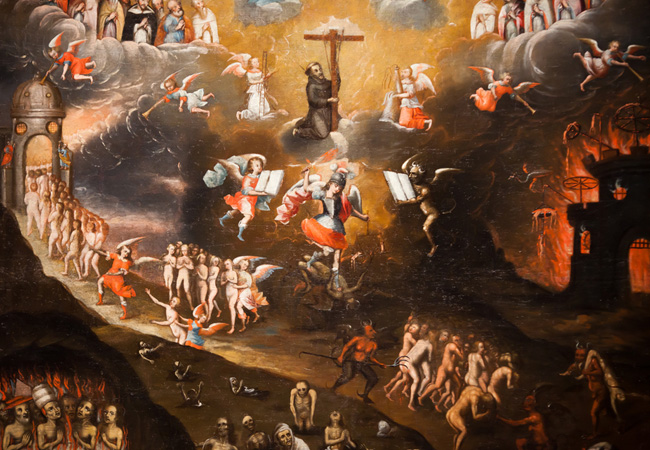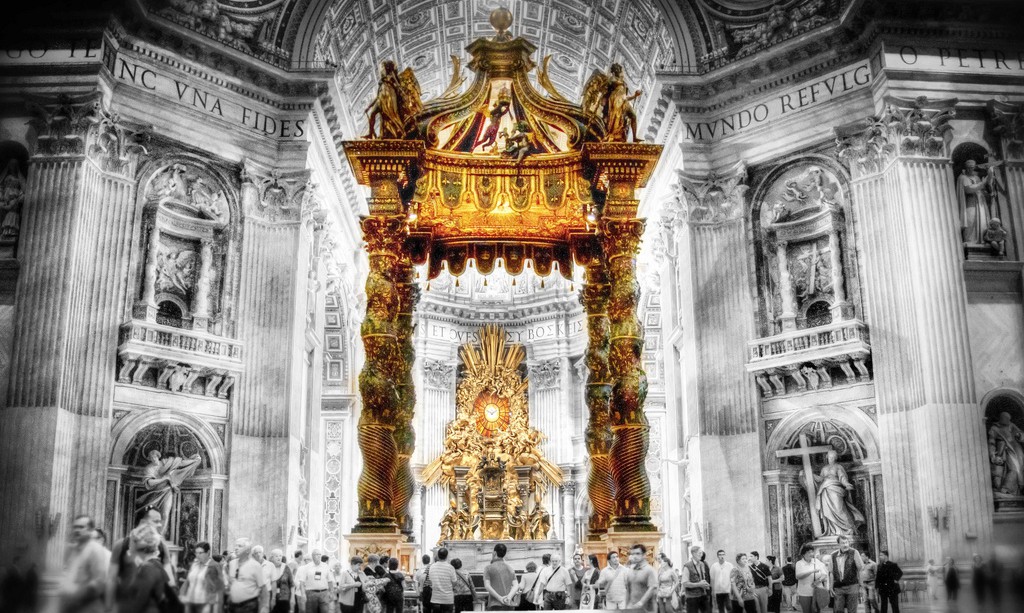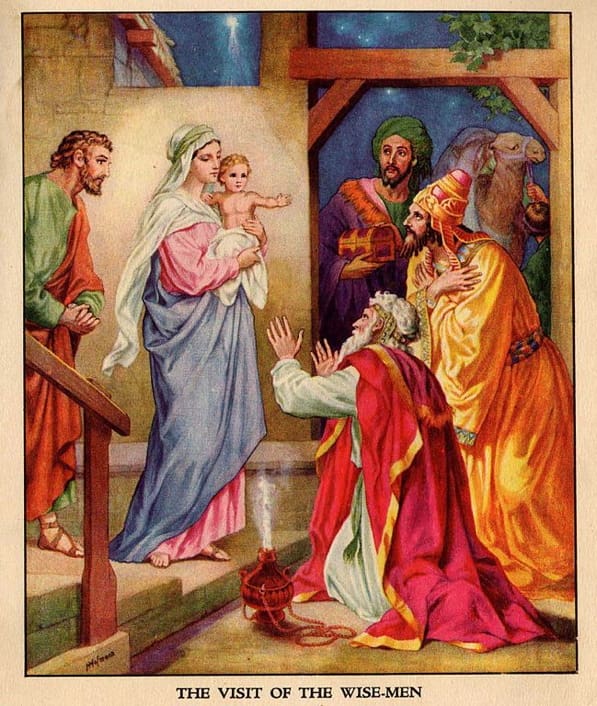
For my posts on the final Ordinations in Winona, go here and here.
Following up from my previous posts, here is the full transcript of Bishop Alfonso de Galaretta’s beautiful sermon for the final Ordinations in Winona, Minnesota.
http://sspx.org/en/news-events/news/sermon-2016-ordinations-mass-16592
http://www.dici.org/en/documents/bishop-alfonso-de-galarreta-ordinations-sermon-winona-june-3-2016/
“Today is a day full of joy – of a noble, profound, Christian joy – as it brings us together around the altar and the sacrifice of Our Lord in order to confer the sacred orders of the priesthood and diaconate, on this feast day of the Sacred Heart of Jesus, our priestly ideal.
Sacerdos alter Christus – the priest is another Christ who, by means of the sacrament of the Eucharist, continues the presence and action of Our Lord, the Eternal High Priest. As a sacrament, the Eucharist perpetuates the Incarnation, the presence of Our Lord among us. As a sacrifice, it perpetuates the redemption, the cross of Our Lord.
The Sacred Heart of Jesus is the object of the preaching and apostolate of the priest. But it is also, at the same time, the form and model of priestly spirituality and activity. St. Paul wants us to know the inexhaustible treasures of wisdom, science, holiness, and charity that are hidden in the Sacred Heart of Jesus.
The Priestly Heart of Jesus Tells us: “I am the Way, and the Truth, and the Life”
Our Lord Himself reveals to us these treasures of His priestly Heart when He says: “I am the way, and the truth, and the life.”[1] Not one way, or one truth, or one life, but the way, the truth, the life.
St. Augustine says that Our Lord is the Way as Man, and the Truth and Life as God. For that reason, Our Lord is, at the same time, the fatherland and our way to the fatherland.
Our Lord is the Way because nobody can go to the Father unless it is through Him. He is the Way because He is the High Priest who reconciles men with God. He is the only Mediator. He is the Way through His Priesthood, His Kingship, and His Church, the only Bride and Mystical Body of Christ, and there is no other way to attain God.
Our Lord is also the Truth, Wisdom incarnate, Light without darkness, without error or lies: “For this was I born, and for this came I into the world; that I should give testimony to the truth. Every one that is of the truth, heareth my voice.”[2] Our Lord died on the cross to give testimony to this truth. He is the source of all truth.
He is also the Life – Resurrection and Life: “I am come that they may have life, and may have it more abundantly.”[3] Our Lord is the supernatural life of souls by His grace, His virtues and holiness, by His sacrifice, which is the source of all graces and holiness.
The proof that the priests is the apostle of the Heart of Jesus is given by the correspondence that exists between what Our Lord tells us and the powers received by the priest with the sacramental character and grace.
The priest has a triple power: potestas regendi, potestas docendi, potestas sanctificandi. The power to rule, to direct souls in the Way that is Our Lord Jesus Christ. The power to teach the truth, only the truth, the integral, supernatural truth. The power to communicate grace to souls and sanctify them in Our Lord Jesus Christ, the power to offer the Holy Sacrifice of the Mass.
At the same time, a reflection of these three powers and their relation to the treasures of the Sacred Heart proves and explains why the solution to the present crisis of the Church resides in the Catholic priesthood, in its sanctity and fidelity.
The liberal, modernist spirit that has penetrated into the Church opposes Our Lord and His action.
Our Lord is the Way – but religious freedom dissolves the social Kingship of Christ. The Church is the only way of salvation, but the modernist spirit relativizes this and leads to religious indifferentism.
Today: Doctrinal Relativism Leads to Moral Relativism
The situation in the Church is clear: there is a doctrinal, dogmatic relativism, which in turn leads to moral relativism and ends into the acceptance and promotion of sin and scandal.
A clear example of this is the question of Communion to the divorced and supposedly “remarried.” There is a new attitude in the Church regarding these de facto, and even unnatural, unions. An unconceivable situation, directly opposed to Our Lord as the Life, the Truth, and the Way.
If ecclesiastical authorities have reached the point of calling evil good, it is because they have first called error truth. All this holds together – between all these things there is coherence, logic, causality.
Our Lord taught us that the tree is recognized by its fruits, and the good tree produces good fruits [4]. Therefore, if the fruit is bitter, corrupted, an incitement to sin, then most certainly the tree from which it comes is a bad tree. And if the tree is bad, it is because the seed was bad.
The problem we live today in the Church is not only one of consequences, but everything after the Council is the bad tree, and all of it is virtually contained in its seed, the Second Vatican Council.
If today we are faced with the scandal of Communion to the divorced and “remarried,” it is on account of post-conciliar legislation and practice, which allowed the inversion of the ends of marriage, weakened its indissolubility, and introduced personalism into it by inventing a new good of marriage: the personal good of the spouses.
All these doctrines, which for years now have been entering the Church, are contained in the Council, in Gaudium et Spes, which establishes these principles. And when the present Pope permits all these things, we see there only the homogenous development of error.
“If we have to choose between faith and a compromise, the choice is already made – no compromise!”
At the same time, we are amazed that there is no general reaction in the Church against these measures, that there is no group of bishops or cardinals who publicly oppose this scandal. This shows the gravity of modernism, which firstly disarms, and then makes the antibodies disappear.
While there are some improvements and a certain dissolution of this spirit, regarding us it is always the same: to be recognized we will have to accept the conciliar novelties…
Not long ago, Pope Francis felt obliged to correct Archbishop Pozzo’s words, stating that the recognition of the SSPX is possible, but only with the previous acknowledgment of Vatican II because “it has its value.” [5]
The hierarchical superior of Archbishop Pozzo, Cardinal Müller, explains [6] that to be Catholic one has to accept the Pope and the Council – religious liberty, ecumenism, etc., are doctrine, common doctrine, that is, doctrine of faith. He compares this with the case of the resurrection of Our Lord, a truth of faith, but one that has not been explicitly defined. And he concludes by saying that to demand the acknowledgment of the Council is not unreasonable and should not be an unsurmountable obstacle for the SSPX. In fact, this acknowledgment is precisely what will lead us to “full communion” – a communion in error. It is clear, then, that the condition is the acceptance of the Council and what came after the Council..
Therefore, it is also clear that the combat continues. As our Superior General, Bishop Fellay, has said, if we have to choose between faith and a compromise, the choice is already made – no compromise! [7]
God may certainly change the circumstances and put us in a different situation. That is our firm hope. But the present reality is what it is.
The Sacred Heart, a Heart of Reparation
Lastly, the Sacred Heart of Jesus is also, essentially, the Heart of the Redeemer, a Heart of reparation. St. Margaret Mary says that Our Lord showed her that there are two sanctities, the sanctity of love and the sanctity of justice, and both are demanding and strict, each in its own way.
There is a double holiness and reparation, to justice and charity, and the priest must offer himself together with Our Lord for the redemption of men and in reparation. Our Lord Himself gave to His apostles this golden rule when He said: “For them do I sanctify myself, that they also may be sanctified in Truth.”[8]
That must be our attitude towards those who are of the family of the Church, the authorities. That is the solution for those errors and weaknesses that we denounce. We have the key in our true identification with the priestly Heart of Jesus.
As St. John says, we must believe in love, in the love of Our Lord. We must trust in the powerful aid of His grace. We have to answer love with love, gift with our own gift, sacrifice with our own sacrifice. That is the way of redemption and restoration.
Let us go to the Immaculate Heart of Mary, the heart of a Mother, full of love, goodness, mercy, constancy, and patience, as the love of a mother is. And Her heart is the surest, most perfect and shortest way to the Sacred Heart of Jesus.
Amen.
Source: FSSPX/USA – Translation, subtitles and notes by DICI June 13, 2016)
[1] John 14:6
[2] John 18:37
[3] John 10:10
[4] See Matt. 7:16-17
[5] Interview with Pope Francis in La Croix on May 16, 2016:
“Q. Would you be ready to grant them a personal prelature?
Pope Francis: It is a possible solution, but first we have to establish a fundamental agreement with them. The Second Vatican Council has its value. We are moving forward slowly, with patience.”
[6] See Cardinal Müller’s interview in the June 2016 edition of Herder Korrespondenz, republished by the Austrian website Kathpress on Mai 24, and quoted by Edward Pentin in the National Catholic Register on the same day: “…Cardinal Müller, whose insistence on the SSPX adhering to the Council’s teaching is clearly more pronounced than that of the Holy Father, told Herder Korrespondenz that one cannot discount the Council as ‘only pastoral chatter’ just because it adopted no binding dogmas. The CDF prefect said that no pope has ever proclaimed Christ’s Resurrection as an ex cathedra [infallible] dogma, and yet it ‘belongs in the center of the creed, it is the foundation.’ ‘Key statements, even if they are not proclaimed ex cathedra [and thus infallible], are, for us Catholics, still essential,’ he said, adding that it is ‘not acceptable to take one and reject the other.’
“Cardinal Müller also said in the interview that one must not be fascinated by every homily from a bishop or pope. Only the magisterium, which is a declaration of faith, needs to be accepted, the cardinal stressed, according to the Kathpress report.
“‘Religious freedom as a fundamental human right and freedom to protect religion regarding the supernatural revelation in Jesus Christ are recognized by every Catholic without reservation’, he said in reference to the relevant Council declarations.
“The recognition of the Second Vatican Council is ‘not an unreasonably high hurdle’ to overcome, he said, adding that it was rather ‘the adequate remedy to enter into full communion with the Pope and the bishops in communion with him.’
“The CDF prefect further asserted that Pope Francis’ relationship to the SSPX does not differ from that of Pope Emeritus Benedict XVI. ‘He sees this and similar groups as Catholic, but still on the way towards full Catholic unity’.”
[7] Bishop Fellay’s interview in National Catholic Register, May 13, 2016:
“I do not seek this canonical regularization as an absolute. For me it is a given, a right to have it, but we’re not going to compromise, to hurt the faith, the discipline of the Church, to get that. We consider it as an injustice not to give it to us, and so we claim our point of view. That’s all. And so if we are put in a choice, let’s say, of between keeping the faith or making a compromise, it’s clear what we’re going to do. We’re not going to compromise.”
[8] John 17:19
God bless our new Priests and keep them steadfast in the Faith and Mass of All Time!
~Damsel of the Faith









